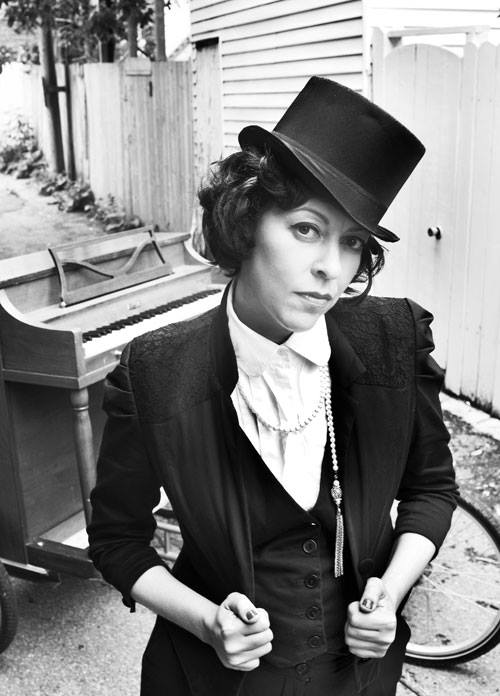
MONTREAL — The Montreal International Jazz Festival broke its silence Sunday on its decision to cancel a controversial show featuring a white woman singing songs composed by black slaves, denying the decision was an act of censorship.
Festival CEO Jacques-Andre Dupont said the decision to abruptly cancel SLAV partway through its run was made for “a mix of technical and human reasons,” including security concerns raised by the escalating vitriol surrounding the show.
He also said that the show’s star, Betty Bonifassi, had broken her ankle and indicated she was no longer able to continue.
“I would have loved had the show been able to continue, but the main artist said she didn’t want to pursue the show, and we had some real security potential issues,” he said at the festival’s closing news conference, adding the decision was “not a gesture of censure.”
He said that while many protesters were peaceful, the festival and the theatre where the show was performed were concerned by the “aggression” of some protesters and the rising division and anger surrounding the show.
He said Bonifassi’s decision was prompted both by her injury and the criticism.
Dupont said the festival and the production company would absorb what he said would be hundreds of thousands of dollars in losses associated with cancelling the show, including paying the performers.
SLAV, one of the hottest tickets at this year’s jazz festival, was the subject of protests over what critics called its appropriation of black culture and history.
It was described as “a theatrical odyssey based on slave songs” and a journey “through traditional Afro-American songs, from cotton fields to construction sites, railroads, from slave songs to prison songs.”
Black activists denounced the show and its mostly-white cast, and U.S. musician Moses Sumney cancelled a gig at the festival in protest.
Amid a storm of international media attention, the festival announced Wednesday it was cancelling the remaining performances and apologizing to anybody who had been hurt.
The renowned Quebec playwright who directed the show criticized the decision to cancel it, calling it a direct blow to artistic freedom.
Robert Lepage declined to weigh in on the issue of cultural appropriation, but said Friday in a statement that actors pretending to be someone else is at the very heart of theatre.
“When we are no longer allowed to step into someone else’s shoes, when it is forbidden to identify with someone else, theatre is denied its very nature, it is prevented from performing its primary function and is thus rendered meaningless,” he said in a statement through the Ex-Machina production company.
On Saturday, Dupont said he had “nothing but admiration” for Lepage, but stood by the festival’s decision.
“I know that intentions are good from everyone, but I cannot not see the depth of the division that we have in front of us,” he said.
Dupont said the festival accepts part of the responsibility for the controversy, which he said goes beyond the jazz festival.
He said organizers have already met with black community members and are ready to participate in a wider societal discussion on race.
“The festival has to do better, and together as a society and a community we all have to do better on these questions,” he said.
While the festival doesn’t control the content of shows, Dupont said organizers are taking the criticism to heart and will reflect on what needs to change in the future.